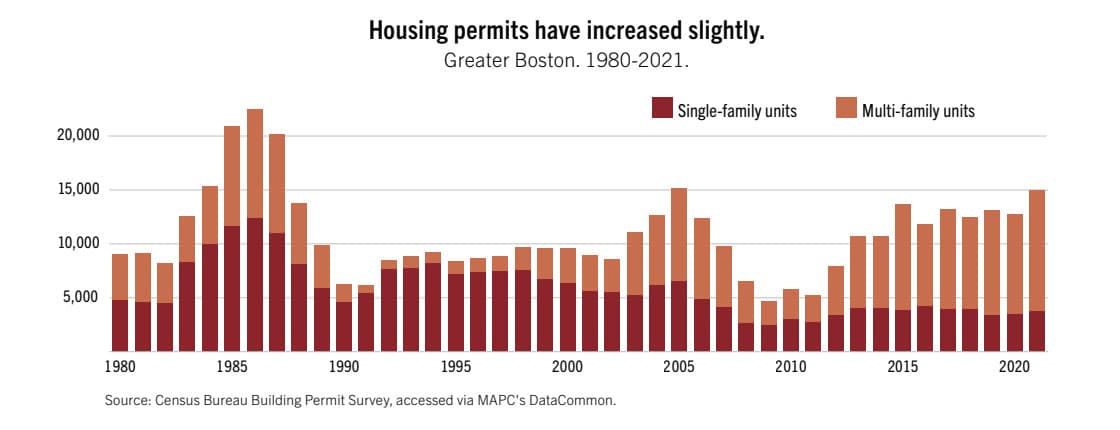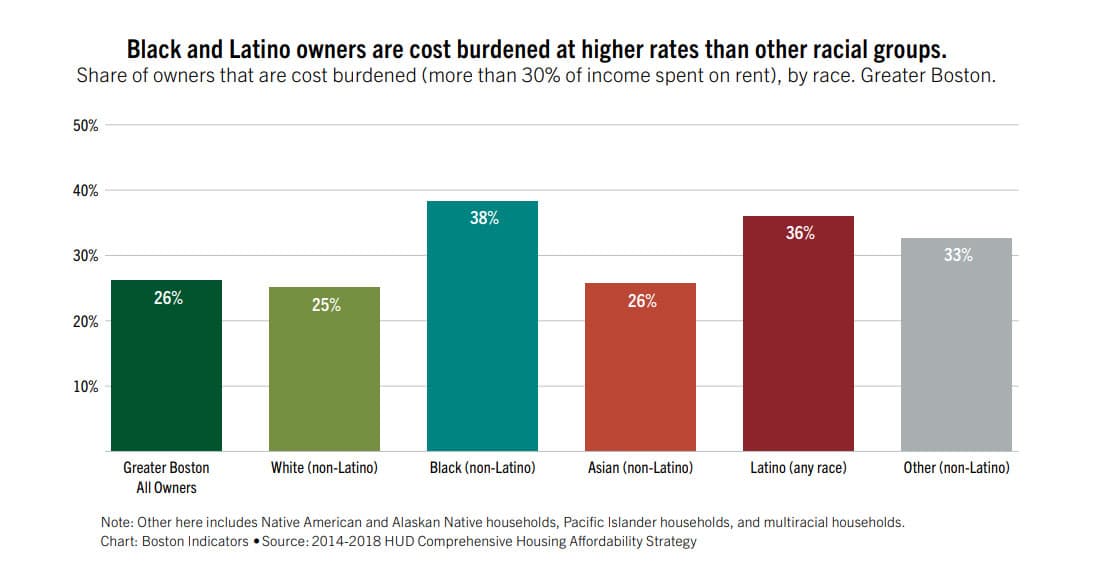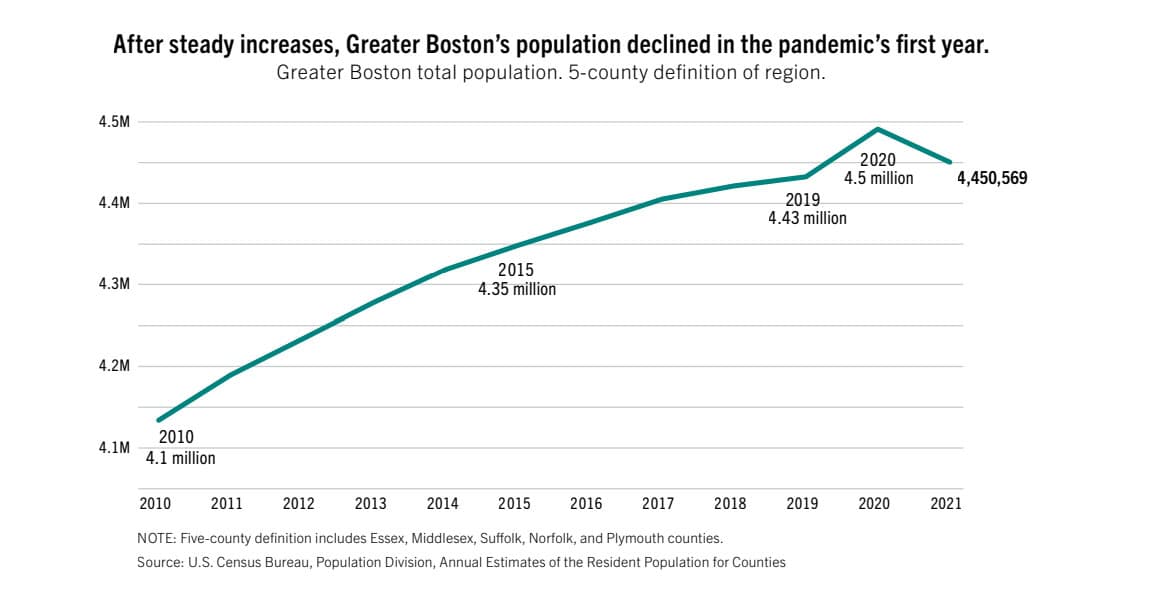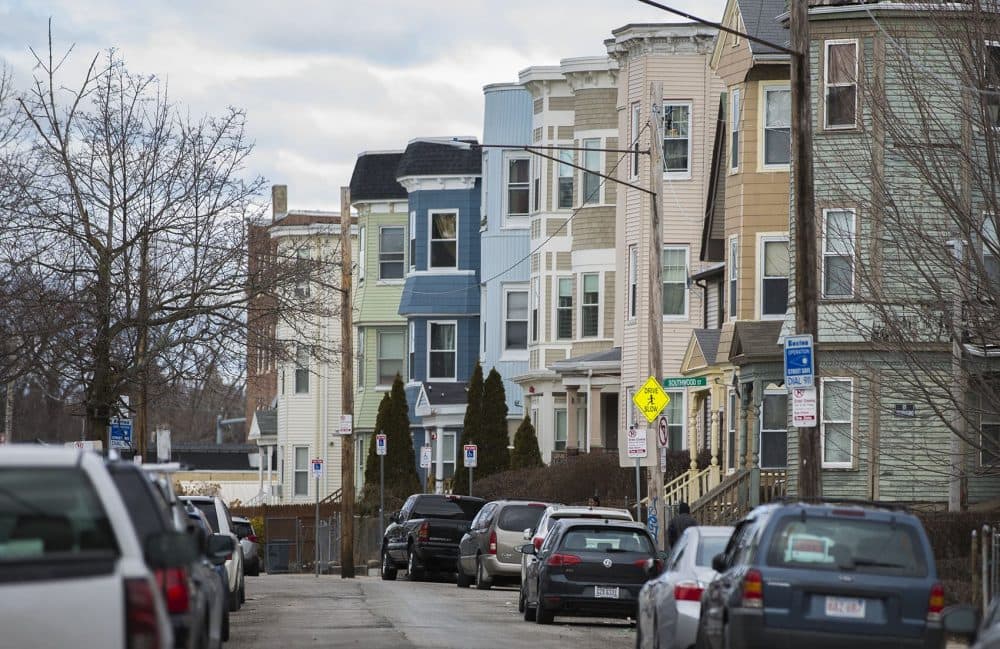Advertisement
Housing report finds Greater Boston is building more units, but not nearly enough
Municipalities in Greater Boston have been building more condos and apartments in recent years, according to a new report from the Boston Foundation.
That's the rare good news in a region synonymous with high housing costs. The report found that cities and towns in the region issued more housing permits in 2021 than they have since 2005.
But, "we have a long way to go," said Luc Schuster, co-author of the report and director of Boston Indicators, a research center at the Boston Foundation. "That said, as a region, there has been a meaningful uptick in housing production in the last five or six years, and in particular, in multi-family housing production."

Gov. Charlie Baker's administration has upped pressure on state and local officials to increase housing stock. It has provided grants and technical assistance to encourage cities and towns to build 135,000 additional units. The administration also directed 175 communities to ease zoning around MBTA transit stops to allow for more multi-family units — a move that sparked opposition among some residents.
Now for the bad news: Despite efforts to build new units, there still aren't enough to meet the demand. Rent and home prices have skyrocketed. According to the Joint Center for Housing Studies at Harvard, households now need an income of at least $181,254 to afford to buy a median-priced home in Greater Boston.
The picture isn't much better for renters. Almost half of renters in the region are spending more than a third of their household income on housing, according to the report. By a government standard set in the 1980s, households that spend more than 30% of income on housing are considered "cost-burdened."

The consequences of the state's housing crisis are becoming more palpable, Schuster said. He believes more people are leaving the state to work, raise families and pay taxes, in lower cost states such as New Hampshire or North Carolina. The Boston Foundation report found fewer families with children are living in Greater Boston today compared to a decade ago.

One big reason supply hasn't kept up with demand, according to Schuster: Most Bostonians still idealize the single-family home.
"In the majority of land in Greater Boston today, it's against the law to build a modest two-unit duplex or the classic Boston triple-decker that the city is known for," Schuster said.
The dearth of multi-family units puts home ownership out of reach for many first-time homebuyers, particularly from Black and Latino communities. This contributes to a persistent wealth gap and ongoing racial segregation in the region.

Despite growing racial diversity in Greater Boston, the majority of the area's Black and Latino residents live in only a few cities. And those cities tend to have lower median household incomes, according to Census data. An analysis from The University of California-Berkeley lists Boston as "highly segregated" and ranks it 24th out of 225 major metro areas for racial segregation.
Many aspects of housing development in Massachusetts are governed by zoning rules, which are made by individual municipalities. Schuster said that needs to change. He argues a key strategy for easing the state's housing crisis is for more housing policy to come from the a state level.
"A lot of [small communities] have chosen the path of freezing in ember the quaint character of their towns, and resist any notion that they ought to build more multi-family housing to contribute to our region's shared needs." Schuster said. "I think that's where you get the most inequitable outcomes."
